- Nestled in the beautiful rolling hills of north central North Carolina, Piedmont Community College provides educational opportunities to approximately 55,000 residents in rural Person and Caswell counties. As one of the 58 member institutions of the North Carolina Community College System, PCC awards Associate Degrees, Diplomas and Certificates in more than 35 curriculum programs. PCC's premiere location positions the College to provide training for the high-tech, in-demand jobs of the 21st century and makes the College an integral factor in the economic development of both counties it serves as well as the state. From the most basic skills classes to college-level courses to specialized industrial training, PCC has it all. PCC is committed to serving its students in a warm and friendly, caring atmosphere.
School Highlights
Piedmont Community College serves 1,551 students (32% of students are full-time).
The college's student:teacher ratio of 7:1 is lower than the state community college average of 13:1.
Minority enrollment is 40% of the student body (majority Black), which is less than the state average of 48%.
Quick Stats (2025)
- Enrollment: 1,551 students
- In-state tuition: $2,419
- Out-state tuition: $8,563
- Student:teacher ratio: 7:1
- Minority enrollment: 40%
- Source: Integrated Postsecondary Education Data System (IPEDS)
Top Rankings
Piedmont Community College ranks among the top 20% of public schools in North Carolina for:
Category
Attribute
School Resources
School Overview
The teacher population of 208 teachers has stayed relatively flat over five years.
Piedmont Community College
(NC) Community College Avg.
Carnegie Classification
Associate's Colleges: Mixed Transfer/Career & Technical-High Nontraditional
Associate's Colleges: Mixed Transfer/Career & Technical-High Nontraditional
Institution Level
At least 2 but less than 4 years
At least 2 but less than 4 years
Institution Control
Public
Public
Total Faculty
208 staff
256 staff
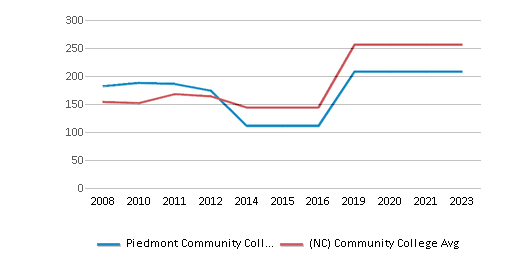
School Calendar
Student Body
The student population of Piedmont Community College has grown by 9% over five years.
The student:teacher ratio of 7:1 has increased from 6:1 over five years.
The Piedmont Community College diversity score of 0.56 is less than the state average of 0.66. The school's diversity has stayed relatively flat over five years.
Total Enrollment
1,551 students
2,542 students
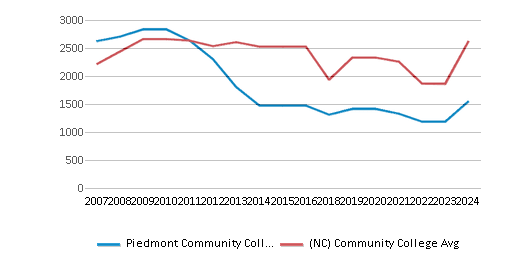
Student : Teacher Ratio
7:1
13:1
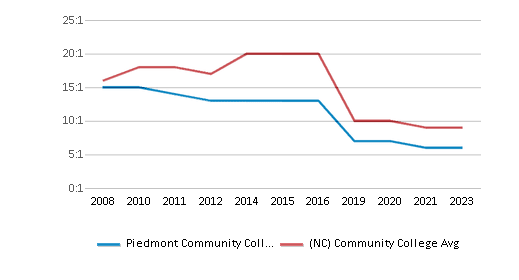
# Full-Time Students
504 students
766 students
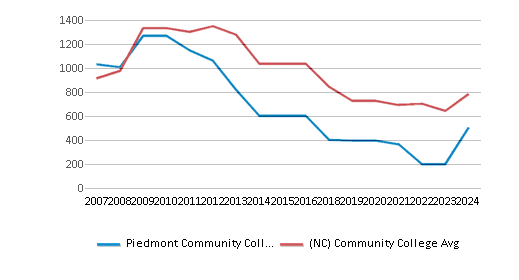
# Part-Time Students
1,047 students
1,813 students
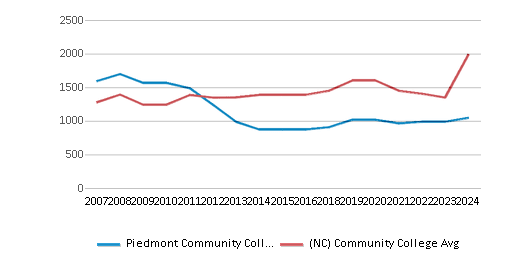
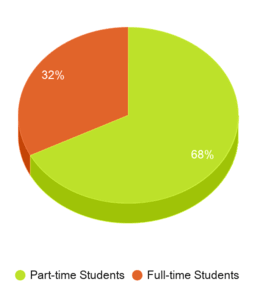
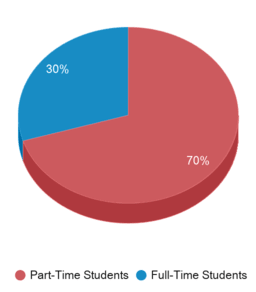
# Enrollment Undergraduate
155 students
316 students
# Full-Time Undergraduate Students
504 students
766 students
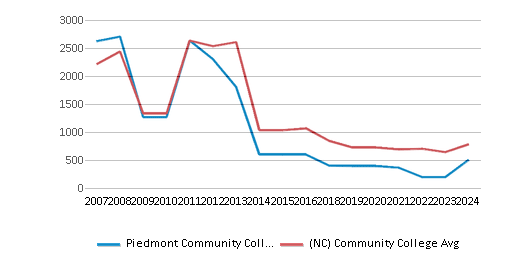
# Full-Time Graduate Students
n/a
22 students
# Part-Time Undergraduate Students
1,047 students
1,990 students
# Part-Time Graduate Students
n/a
3 students
Total Dormitory Capacity
n/a
717 students
% American Indian/Alaskan
1%
1%
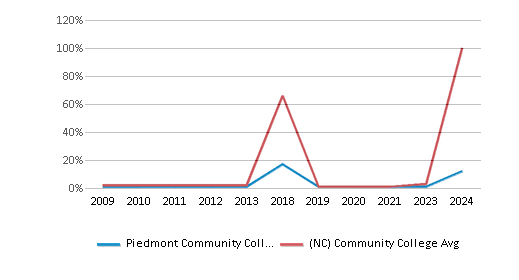
% Asian
1%
3%
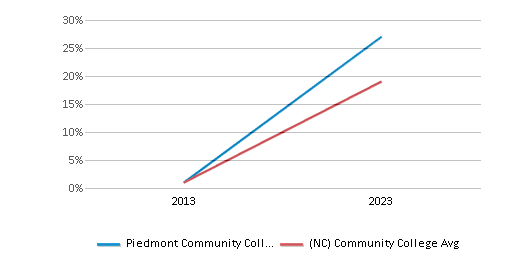
% Hispanic
7%
13%
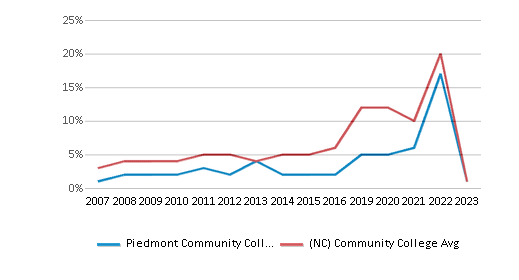
% Black
28%
21%
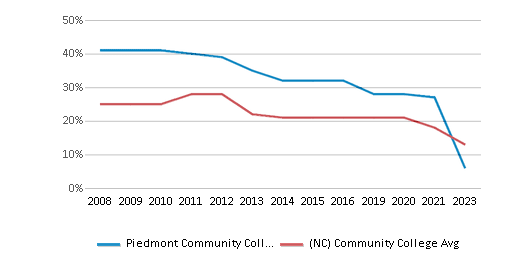
% White
60%
52%
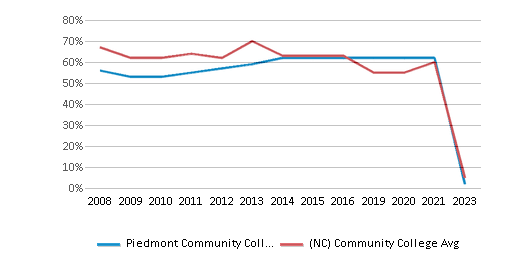
% Hawaiian
n/a
1%
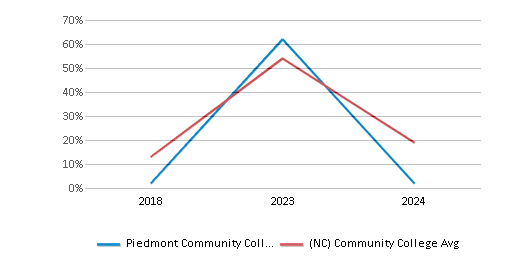
% Two or more races
2%
3%
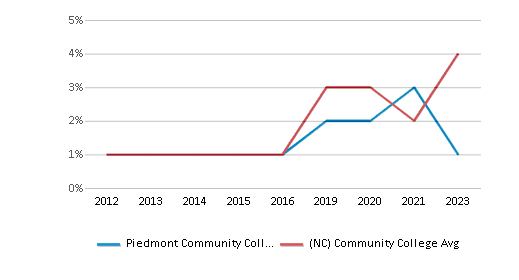
% Non Resident races
n/a
1%
% Unknown races
2%
5%
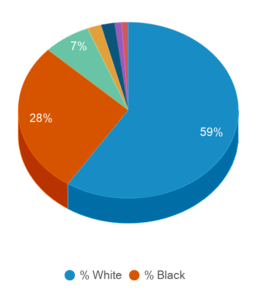
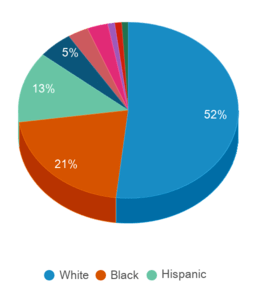
Diversity Score
0.56
0.66
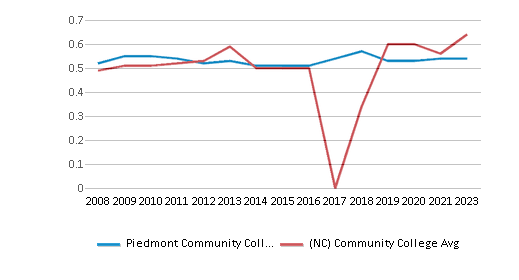
College Completion Rate (Students who graduate in less than 4 years)
0.3028%
0.3684%

College Completion Rate (Students who graduate in 4 years or more than 4 years)
n/a
0.4286%
Average Graduate Earnings (10 Years)
$24,600
$27,500
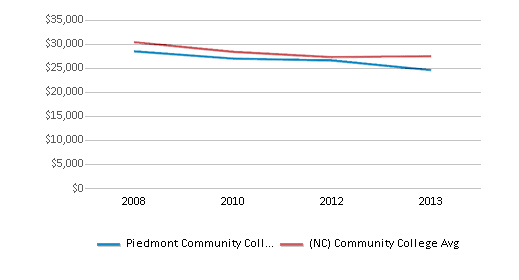
Tuition and Acceptance Rate
The public in-state tuition of $2,419 is less than the state average of $3,915. The in-state tuition has stayed relatively flat over four years.
The public out-state tuition of $8,563 is less than the state average of $9,508. The out-state tuition has stayed relatively flat over four years.
In-State Tuition Fees
$2,419
$3,915
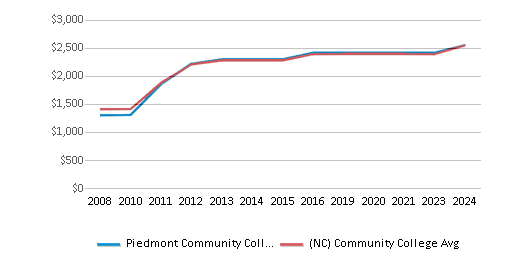
Out-State Tuition Fees
$8,563
$9,508
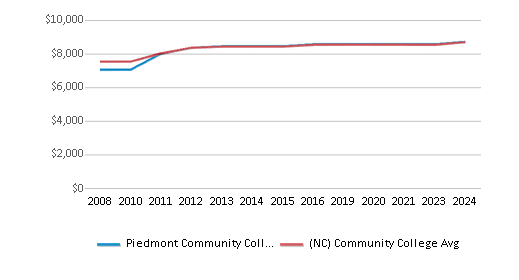
% Students Receiving Some Financial Aid
97%
82%
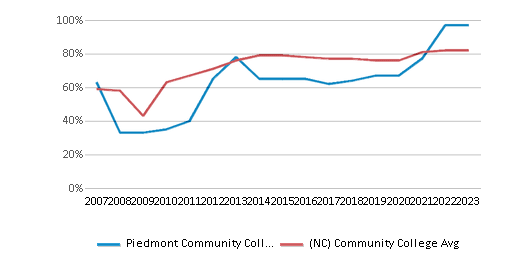
Median Debt for Graduates
$7,536
$10,500
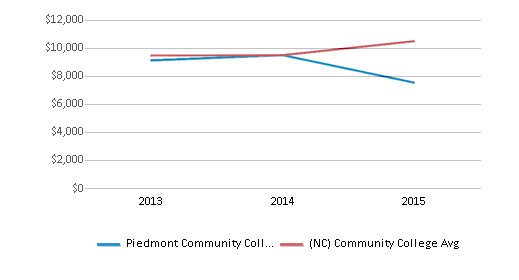
Median Debt for Dropouts
$7,300
$6,000
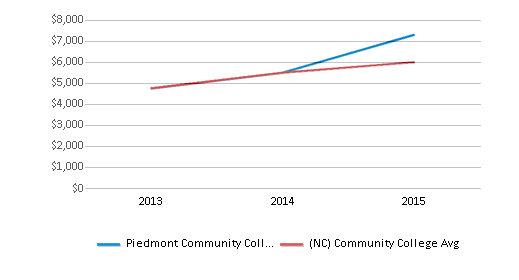
Acceptance Rate
n/a
82%
SAT Reading
n/a
488
SAT Math
n/a
498
ACT Composite
n/a
20
ACT English
n/a
13
ACT Math
n/a
16
Source: 2024 (or latest year available) Integrated Postsecondary Education Data System (IPEDS)
School Notes
- Piedmont Community College (PCC) has two campuses, one in Person County and the other in Caswell County. PCC's main campus is located in Roxboro, NC (Person County), and its second campus is located in Yanceyville, NC (Caswell County). Curriculum courses to Associate degrees, diplomas or certificates in one of the more than 30 programs of study offered by PCC. These classes are also transferable to other colleges and other curricula, and, are, in general, a semester in length. Courses taught in a mini-mester or other special session would be exceptions. Students earn credit based on the number of hours the class meets each week. Continuing Education courses vary in length from one class period to multiple class periods, depending on the type of class. Continuing Education courses include those for personal interest, renewal of professional licenses, emergency services training, business development, industry training, and training on specific computer software. Continuing Education courses 10 hours or more in length that are appropriate to a person's field of study may be taken for Continuing Education Units (CEUs) of credit. Piedmont Community College is accredited by the Commission on Colleges of Southern Association of Colleges and Schools to award associate degrees, diplomas and certificates.
Frequently Asked Questions
How much does Piedmont Community College cost?
Piedmont Community College's tuition is approximately $2,419 for In-State students and $8,563 for Out-State students.
What is Piedmont Community College's ranking?
Piedmont Community College ranks among the top 20% of community college in North Carolina for: Percent of students receiving financial aid.
Recent Articles

Obtaining Your Bachelor's Degree at a Community College
Explore the evolving landscape of community colleges offering bachelor's degrees, addressing affordability, accessibility, and workforce needs.

A to Z of Community College Certificates and Courses
From business and healthcare to technology and skilled trades, the article showcases the breadth of options available to students seeking to enhance their knowledge, develop new skills, or pursue career advancement.

What is a Community College?
This comprehensive guide explains what a community college is, its history, and its role in higher education. It covers the types of programs offered, differences from four-year colleges, benefits of attending, and important considerations for prospective students, providing valuable insights for those exploring educational options.









